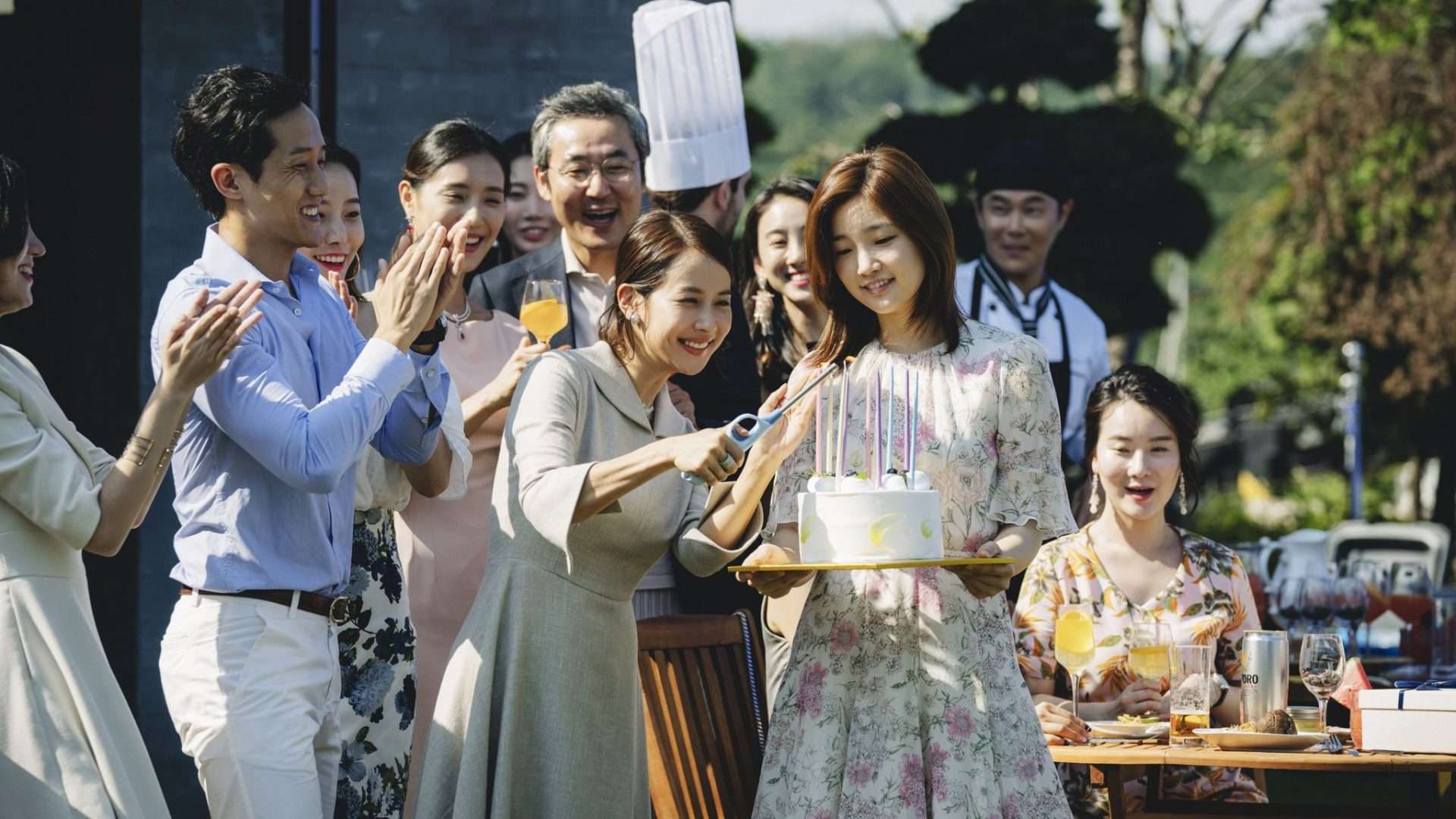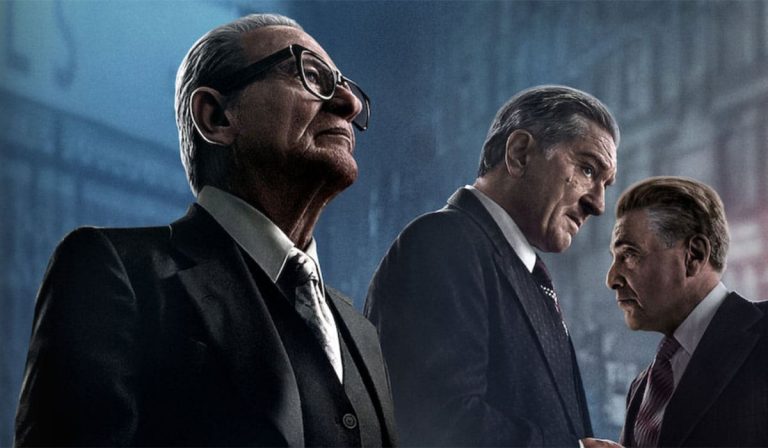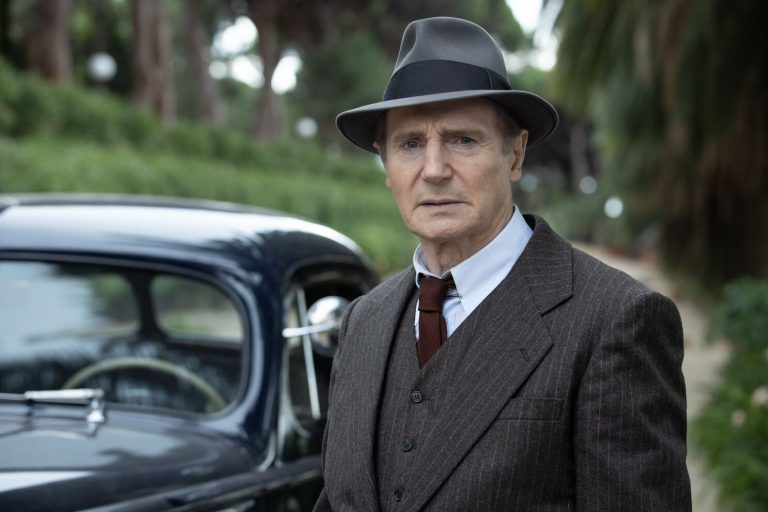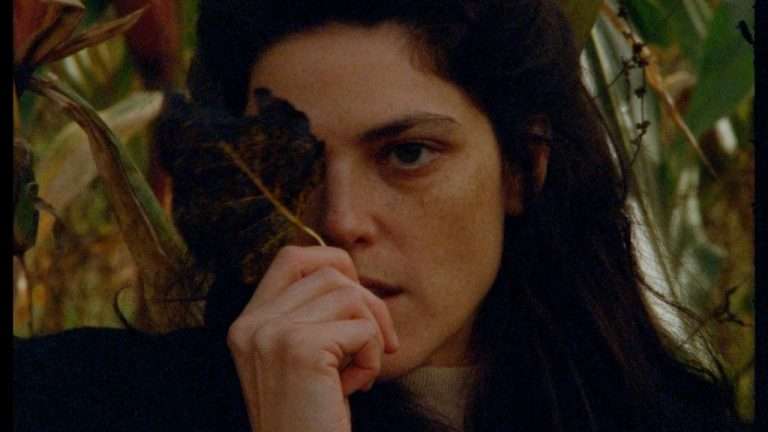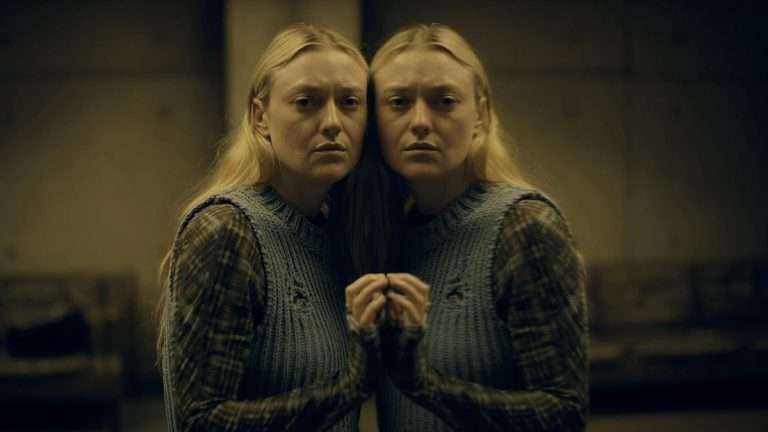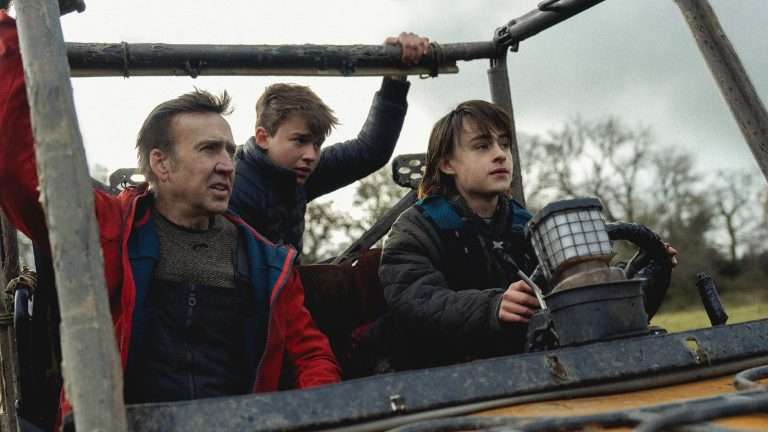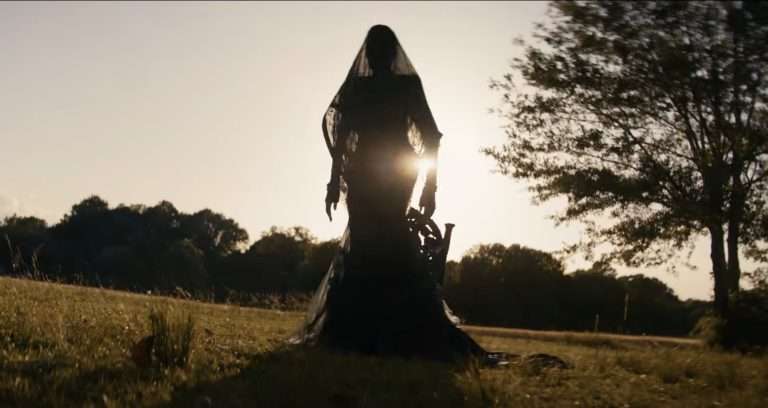Bong Joon-ho is one of the most idiosyncratic filmmakers of the modern era of cinema. The South Korean director has been working on films since the ’90s and has become a mainstay of the international scene over the years. That is, of course, thanks to his impeccable body of work, which showcases his remarkable consistency and ability to deliver wild shifts in tone and style. No two of his films are alike, but they share a DNA that could only be attributed to him – that is, the power of his very singular aesthetic.
After debuting with 2000’s Barking Dogs Never Bite, Bong broke into the industry proper with Memories of Murder in 2003. He followed that up with incredible fare like The Host (2006) and did some Hollywood movies to cement his promising career (Snowpiercer in 2013 and Okja in 2017). However, it was after he returned to fully Korean-language films that he really made his mark. Of course, we refer to Parasite, one of the most complex and well-made pictures of the director’s career.
The film features a story by Bong and a script by him and collaborator Han Jin-won, which is notable for how personal it is for the filmmaker. Besides marking his return to making films set entirely in Korea, the central premise is inspired by the director’s own experiences. Before becoming a filmmaker, the director worked as a tutor for a student from an upper-class family–exactly like the main character in Parasite. Hence, the film harkens back to a time in his life when he struggled financially as a student, and as a result, Parasite is very personal to him.
That is undoubtedly part of the reason the film has garnered such acclaim. This dark thriller won both Best Picture at the Oscars and the Palme d’Or at Cannes, proving that it is a work that speaks to both the mainstream crowd and arthouse cinephiles. Critics love it, and viewers from all over the world can see themselves in it. Such is the power of Parasite, which tells a particular story embedded in Korea’s culture and social mores and makes that story relatable to international audiences. It can do that thanks to a plethora of very sophisticated themes and ideas that ring in the viewer’s mind.
That element of the film has undoubtedly brought you to this article, so join us as we dig into the beautiful complexities of Bong Joon-ho’s Oscar-winning masterpiece. We’ll be spoiling every part of the film in the process, so steer clear of what follows beyond this point if you haven’t seen the movie. Trust us when we say this is not a film you want to be spoiled for you.
Parasite (2019) Plot Summary & Movie Synopsis:
Introduction to the Park Family
Parasite begins by introducing us to the working-class Kims, a nuclear family unit consisting of patriarch Kim Ki-taek (Song Kang-ho), his wife Choi Yeon-gyo (Cho Yeo-jeong), and their children: daughter Kim Ki-jung (Park So-dam) and son Kim Ki-woo (Choi Woo-shik). The Kims live in a semi-basement apartment called a banjiha in Seoul, and they make ends meet by folding pizza boxes and selling them to the pizza delivery people. Their home is small and dingy, and they can’t even afford internet (one of the film’s most memorable moments features Ki-woo attempting to catch the signal of the neighbors’ wi-fi by holding his phone up all over the house). Above all else, the Kims are wily–their desperation has made them willing to do anything to go up in the world.
That desperation finds an outlet with the arrival of Min-hyuk (Park Seo-joon), an old friend of Ki-woo’s from college. Min-hyuk gives the Kims an antique rock (known in Korea as a suseok) as a gift from his grandfather, claiming that it will bring them material wealth at some point in the future. There are many theories about what this rock represents (more on those later), and even the characters remark on how it is a very “metaphorical” gift (highlighting Bong’s tongue-in-cheek style). Min-hyuk then has dinner with Ki-woo and tells him he will be leaving to study abroad soon. He offers Ki-woo a nefarious opportunity, proposing that the young man pose as Min-hyuk and take on a job as a tutor for the daughter of a wealthy family that lives nearby.
This moment forms the inciting incident of Parasite – Ki-woo agrees to pose as Min-hyuk and, with a little forgery help from his sister, is able to falsify the necessary documents. Before leaving for his new employer’s house, he tells his father that he doesn’t think of his impersonation as a crime–he has merely “printed out his documents early.” His father, in turn, tells him he is proud of him, and this is where things start to go wrong.
Ki-Woo Begins His Tutoring Job
After making his way to the affluent neighborhood where his new employers live, Ki-Woo is acquainted with the upper-class Park family. The Parks are part of the elites in Seoul, and they, too, are notably a nuclear family unit. That unit includes the father, Park Dong-ik (Lee Sun-kyun); the mother, Choi Yeon-gyo (Cho Yeo-jeong); the daughter, Park Da-hye (Jung Ji-so, whom Ki-Woo is meant to teach); and the young son Park Da-song (Jung Hyeon-jun). Dong-ik is implied to be some kind of software designer, a job that pays for a beautiful house built in a spectacular modernist style.
The whole scenario makes a great impression on Ki-woo, who is able to deliver his ruse with no hitches and secure a job as Da-hye’s English tutor after a simple trial class. The Parks are impressed but have no idea how much the experience of meeting them has affected Ki-woo. The family is utterly aloof, with the husband outside the home all day, the wife an absent-minded housewife, and the children spoiled and content. Moreover, the household chores are all performed by a housekeeper named Gook Moon-gwang (Lee Jung-eun). Ki-woo is immediately struck by how different the two families’ standards of living are, and it is at this point that he decides to take further advantage of the Parks.
The Kim Family Infiltrates the Park Household
At a public kitchen that distributes food for needy people, the Kims convene and start scheming how they can all find employment with the Parks. In one of the most excellent sequences of the 21st century, we see the Kims execute an elaborate plan, almost a heist, aiming to leech off the wealth of the more economically fortunate Park family. They do this patiently, already having a man on the inside thanks to Ki-woo’s tutorship, and what’s chilling is that they do not intend to let anyone stand in their way. It’s easy to sweep those feelings aside at this point since Bong directs this section of the narrative in a remarkably entertaining manner.
The next Kim family member to be inducted into the Park home is Ki-jung. After learning that the Park’s pre-adolescent son is fond of making childish drawings, Ki-woo recommends his sister as a gifted art teacher for young minds. Mrs. Park invites Ki-jung to their house, and she poses as “Jessica,” an art therapist. “Jessica” diagnoses the Parks’ precocious son with a bogus mental condition. This gains her immediate employment in order to treat the boy’s non-existent problems. On her way back to the semi-basement, Ki-jung leaves her underwear in the Parks’ car, planting the seed for the next Kim family member to get in.
Park Dong-ik, on his way back from work, finds the underwear and suspects his driver of sleeping around with women in the car. He confides this to his wife, and the two decide to fire the chauffeur. At this point, “Jessica” recommends a new driver for the Parks to employ, which is how Kim Ki-taek becomes the Parks’ new chauffeur. Now, the only person in the Kim family who still doesn’t have a job is Chung-sook, the mother.
Of course, she doesn’t have to wait much. The three employed Kims work together to frame the current housekeeper’s peach allergies as tuberculosis, duping Mrs. Park into believing that the housekeeper needs to be fired. The Kims then bring in Chung-sook as the new housekeeper, and the family is finally together in the Park household. Kim-woo even seduces Da-hye, the Parks’ daughter, and the two start a relationship. It’s all without the Parks knowing anything about their plan, and it’s notable that while the Kims are wily and clever, the Parks are incredibly gullible and easy to deceive. Bong makes us feel almost like the Parks deserve it, and this section of the film ends very satisfactorily. The positive feeling doesn’t last long, however.
Finding the Basement
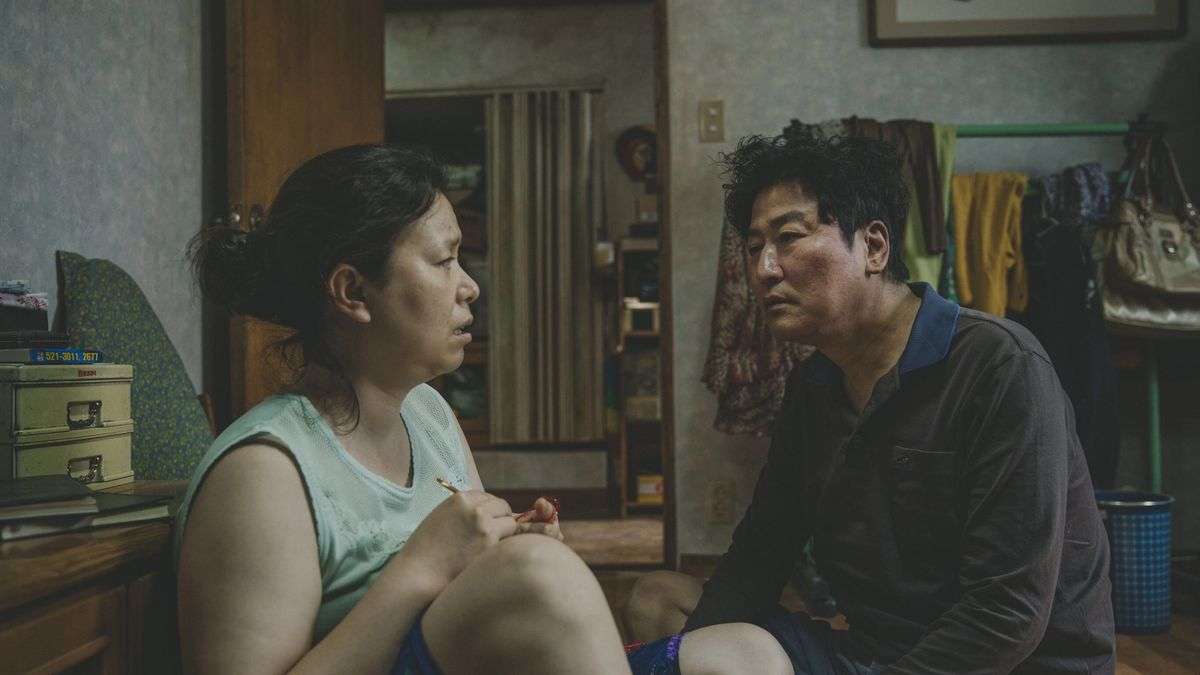
The Parks leave for a camping trip one afternoon, leaving the house with their new housekeeper in charge. Of course, the moment they leave, the Kims invade and revel in their newfound freedom. They take full advantage of being alone in the house, drinking wine and lounging around, ecstatic that they have managed to tap into the Parks’ immense wealth. While discussing the gullibility of their employers, Mr. Kim comments that the Parks are “rich but still nice,” to which his wife replies, “They are nice because they are rich.”
Then, the doorbell rings. It is Moon-gwang, the old housekeeper. She says she needs to retrieve something from inside the house that she forgot to take with her. Every one of the Kims beside Chung-sook (the new housekeeper) hides in the lounge, and Chung-sook lets Moon-gwang inside the house. Moon-gwang immediately walks to the basement, followed by Chung-sook and the rest of the Kim family sneaking behind her.
The old housekeeper uncovers a secret passageway inside the basement, leading deeper underground to a crude living space. It is revealed that Moon-gwang’s husband, Oh Geun-sae (Park Myung-hoon), has been living there for four years in an attempt to evade the loan sharks hounding him, utterly unbeknownst to the Parks. Moreover, Geun-sae states he has “nothing but the utmost respect for Mr. Park.”
Moon-gwang begs Chung-sook not to tell the Parks and to bring Geun-sae food every week so he can continue staying there. She offers Chung-sook payment, but Chung-sook denies her pleas. However, before she can call the Parks, the other Kims stumble down to the basement and reveal themselves to Moon-gwang and her husband. The old housekeeper takes a video of them, and the tables turn immediately. Moon–gwang and Geun-sae take the Kims upstairs and keep them hostage under the threat of sending the video to the Parks (which would reveal that the Kims are all related to each other).
The Storm
The film takes another turn when the phone rings. Moon-gwang tells Chung-sook to answer the phone, and we learn that it’s the Parks: they say that they are being forced to return home because of a raging thunderstorm. The Parks mobilize in the panic this announcement causes and overpower Moon-gwang and her husband. They start taking the two “intruders” downstairs, but Moon-gwang struggles, and in the process, she falls down the stairs to the first basement and cracks her head against the wall. The Kims deposit their prisoners in the secret basement and are able to find hiding places just seconds before the Parks return.
Chung-sook welcomes the Parks home, but they don’t head upstairs, instead staying near the lounge where the other Kims lie hidden under a table. Mrs. Park recounts a story to Chung-sook, telling her that Da-song had a panic attack one night after he claimed to have seen a pair of eyes rise up from the basement (which we now know belonged to Geun-sae).
The Parks’ son then says he wants to camp outside on the lawn instead, and his parents allow him to since the rain is not as heavy in their area. To keep an eye on him, however, they decide to sleep in the lounge, settling down for bed before they make love. The three Kims remain stuck underneath the table while all this happens, and they hear Mr. Park remark that he smells something odorous nearby–they sneak out the moment the Parks fall asleep, the storm raging on outside.
However, things only get worse from there as the Kims return home to find their home flooded by ceaseless rainwater. They attempt to salvage what they can (including the antique rock, which Ki-woo finds floating in the water) but ultimately are forced to spend the night in a gym with other flood victims. Ki-woo sleeps while hugging the suseok (the antique rock) as his father tells him that he never had a plan for the family to begin with. He tells Ki-woo that the best kind of plan is “no plan at all” because “life cannot be planned.” Ki-woo listens in silence, clearly affected by his father’s disillusionment.
The Party
The following day, the elder Kims return to the Park household in order to help prepare for Da-song (the young boy) ‘s impromptu birthday party. While being driven around by Mr. Kim, Mrs. Park smells the same odor from Mr. Kim that her husband smelt the night prior but doesn’t recognize. Mr. Kim notices her open the window to let it out, and his mood, already lowered by the flooding, worsens. Mrs. Park notes how the weather has become very pleasant after the storm and invites “Jessica” and Ki-woo to the party as well. The two arrive to find preparations in full swing.
Ki-woo goes upstairs and kisses Da-hye, after which she comments that his mind seems to be elsewhere. While looking down at the party preparations from above, Ki-woo notes how beautiful everyone looks, even though the party was suddenly arranged. “Do I fit in here?” he asks Da-hye, and he doesn’t seem to believe her when she nods positively in response. Ki-woo takes the antique rock outside his satchel and takes it downstairs to the basement.
Meanwhile, Mr. Kim and Mr. Park prepare to perform in Native American costumes for the young boy’s birthday surprise. Utterly disgusted by the extravagance of the party, Mr. Kim is evidently unwilling to play out the role his employers are now asking of him. Downstairs in the basement, Ki-woo finds Moon-gwang dead due to her head injury, and before he can leave, Geun-sae attacks him. Ki-woo attempts to escape, but the older man knocks him down on the way upstairs and then strikes his head with the antique rock. Geun-sae then takes a knife from the kitchen and steps outside, where the cake for the birthday party is about to be cut.
Geun-sae stabs “Jessica” as part of his revenge for the death of his wife. Da-song, reacting to the violence and the sight of Geun-sae, faints while Chung-sook runs to her daughter’s aid, stabbing Geun-sae with a barbecue skewer. Mr. Kim and Chung-sook rush to their daughter while Mrs. Park pleads for someone to take her son to the hospital. Subsequently, Mr. Park approaches Geun-sae, who proclaims his respect for his unwitting landlord, yelling “Respect!” as he dies from his wounds. Mr. Park, in response, puts his hand over his nose, and this enrages Mr. Kim, who picks up Geun-sae’s knife and stabs Mr. Park to death before fleeing.
Epilogue
Weeks later, Ki-woo awakes from brain surgery to learn that his family has been torn apart. While initially he says he “kept laughing,” he is sobered when he watches the news reports of the incident. His sister died as a result of her stab wounds, and his father is nowhere to be found. A German family now owns the Parks’ home–the fate of the Parks is hence left ambiguous. While spying on their former workplace, Ki-woo sees a kitchen light blinking in a specific pattern and sees that the pattern is a message being communicated through Morse code.
The author of this message is Ki-woo’s father, Ki-taek, who has been hiding in the secret basement of the Park household since the birthday party. He left only to bury Moon-gwang’s body on the lawn and survived by raiding the Germans’ fridge whenever possible. He says that he is still mourning Ki-jung’s death. Ki-woo writes a letter in reply, saying that he has “made a plan – a fundamental plan. I’m going to earn money, a lot of it. University, a career, marriage, those are all fine, but first, I’ll earn money. When I have money, I’ll buy the house. On the day we move in, Mom and I will be in the yard because the sunshine is so nice there. All you’ll need to do is walk up the stairs. Take care until then. So long.”
We see this plan play out in the film and witness Ki-taek leave the basement and embrace his son in the garden of the home that once belonged to the Parks. However, before we can linger on this image, the film fades to black and returns to the semi-basement where Ki-woo is writing the letter. The film leaves us here with Ki-woo thinking about the future while seated in the dingy lounge of his semi-basement home.
Parasite (2019) Movie Ending Explained &Themes Analysed:
So, what did Bong mean to convey with that epilogue? Why cut back to Ki-woo in the semi-basement when we’ve just seen him reunite with his father in the future? Well, if you think about it, it becomes pretty clear that the scenes we saw of Ki-woo’s plans succeeding were not literal depictions–in fact, they didn’t happen. They were mere fantasies he saw of going up in the world and acquiring enough social and economic capital to save his father from confinement. In reality, as the film has shown us throughout its runtime, Ki-woo will never be able to rise up the social structure as it is.
How does Bong make this clear? Well, think back to Ki-woo and Ki-taek’s conversation in the gymnasium after the flood. Mr. Kim tells his son that the best kind of plan is no plan at all, and that’s because plans don’t work out for people like them. This comes at a very low point in the story when it’s clear that things aren’t going to end well for the Kims. Then, during the ending proper, Ki-woo starts his letter to his father by writing, “Dad, today I made a plan…” and the character is too naive to realize he is falling into the same trap that Ki-taek warned him of.
This ties into Parasite’s themes of the corrupt system under capitalism and the sad inevitability of class warfare. Plans never bear fruit for the working class under the current system, and Bong Joon-ho wants to make that point land. It’s a very bleak ending. Even though Ki-woo thinks he can redeem himself and save his father, the path to his dreams will be near-impossible to traverse. The director has commented on the darkness of this final moment himself, and there are several themes and symbols sprinkled throughout the picture that support this reading, including the filmmakers’ use of props, sets, and many visual motifs.
The Antique Rock and the Failed Promise of Social Mobility
The Kims, believing in capitalism and the system they find themselves in, think they can move up in the world if they play their cards right. The family is wise, and when playing by the rules doesn’t work, they turn to less savory means of making a living, believing such a thing will work for them. This belief is symbolized by their treatment of the antique rock that Ki-woo’s friend gives them, representing the fabled “wealth” they are desperate to earn.
Capitalism runs on ambition, on the belief that anyone can make massive amounts of money if they just work hard enough and put enough hours into their jobs. The sad reality is that not everyone can achieve that kind of success, and most of the capital is concentrated at the very top of the social pyramid (symbolized in the film by the Parks). Even those who rise the ranks only manage to do so by forsaking their values as human beings–the promise of social mobility and the capacity for growth is, hence, a false one.
That falsehood is revealed in a very subtle way in Parasite. When Ki-woo returns home after the flood, he finds the antique rock floating in the water, indicating that it is, in fact, a fake suseok (since an authentic stone would have sunk to the floor. This is also the reason Ki-woo does not die after the rock hits his head–a genuine antique would have crushed him). Hence, the promise of wealth that the stone represented is also rendered false. At this point in the film, Ki-woo realizes how broken the system leads to the finale, where another central theme of Parasite comes to a head.
Class Inequality and the Use of Stairs and Elevation
If you think about it, stairs and elevation play a significant role in this film. The sets all subtly indicate the class of the characters through the use of stairs and elevation. The elite Parks live in a double-story house, the struggling Kims live in a semi-basement apartment, and the old housekeeper and her husband make their home in a literal basement, as low to the ground as can be.
Stairs represent temporary mobility through the classes. When Ki-woo visits the Park household for the first time, he takes a large flight of stairs upwards to reach their neighborhood. When the Kims rush home during the flood, they walk down endless flights of stairs to arrive in time. And when the secret basement finally reveals itself, the characters move up and down the staircases, often hurting themselves and each other in the process.
The shift in elevation is also reflected subtly during the sequence where the Kims are hidden underneath the table. Even in the same house, the Parks are above the Kims, lying down on sofas while the poorer family lies in hiding on the floor. These subtle hints indicate the dehumanizing nature of capitalism, which places human beings in differential positions and gives them little control over their circumstances. The powerlessness of the human condition under capitalism is communicated in this way.
Class Warfare and The Meaning of the Title
Capitalism breeds and encourages a natural scarcity of resources. The system would not run if everyone had enough to live off of, and hence, individuals are forced to compete with each other for the ability to live fulfilling lives. Parasite takes this to a satirical extreme in depicting the flat-out violence between the Kims and the occupants of the secret basement. They both want to leech off the Parks’ fortunes, and they’ll do anything to win the war for wealth. One way to interpret the film’s title is to see the Kims as a parasitic family latched on to the Parks.
However, another way to view it is less sympathetic to the wealthy family. The Parks are depicted as largely oblivious and naive. They have none of the cunning or resourcefulness of the Kims, and it’s clear that the only reason they have the wealth they do is their standing in the elite segment of society. Capitalism, the actual parasite in the film, concentrates money at the top and doesn’t let it trickle down. Hence, the Parks are inadvertently just as much to blame for the Kims’ misfortune as anyone else.
Ultimately, each side thinks of the other as a parasite working against it, brewing the finale’s bitter violence. Mr. Kim, driven to obscene anger due to the Parks’ lack of empathy for those under them (represented by the “smell” they hate so much), kills Mr. Park, but not before Geun-sae kills Ki-jung. The working classes fight against each other, and not even the elite are left out of the firing line.
The Ultimate Tragedy of Parasite
The tragedy of the ending is compounded when you realize that Ki-woo realizes how broken the system is towards the end. He takes the antique rock, which he knows to be fake, downstairs to the basement in order to show it to Moon-gwang and her husband, but by that point, it is too late. Of course, you could also read that scene as Ki-woo going downstairs to kill the prisoners, but there is little to suggest that he would do something like that at that point in the film. His ultimate formulation of the “plan” is thus all the more heartbreaking–a fact that Bong is clearly aware of.
During his college years, Bong Joon-ho was himself a student activist in left-wing movements. As such, the director has a very sober view of the current economic system that dominates the world. Ultimately, Parasite is a satirical critique of the capitalist system. When Bong was asked why the film resonated with international audiences, he said it was because “we all live in the same country–it’s called capitalism.” Overall, Parasite captures the injustice of the system perfectly.

